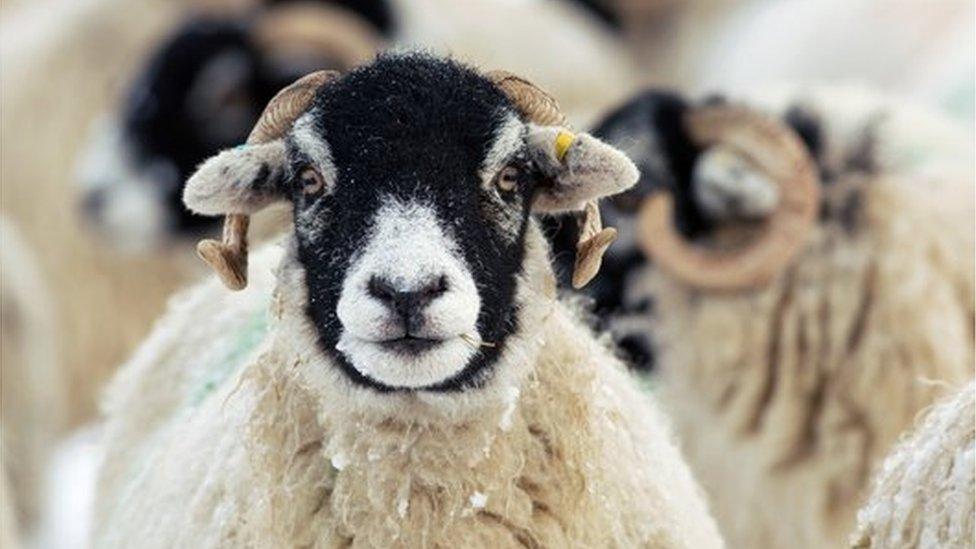Three more cases of bluetongue disease confirmed
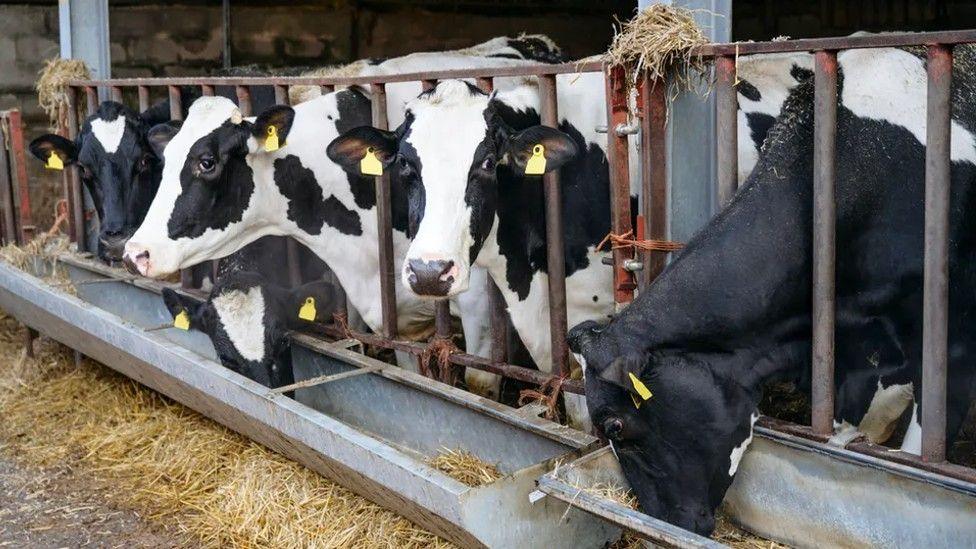
The Government said more livestock in Norfolk and Suffolk had been infected with bluetongue virus
- Published
Three more animals have been confirmed to have contracted the bluetongue virus.
The Department for Environment, Food & Rural Affairs (Defra) said: "Following reports of clinical suspicion in sheep on two new premises in Norfolk and Suffolk, bluetongue serotype 3 (BTV-3) has been confirmed in three more animals."
Defra added the animals would be humanely culled "to minimise the risk of onward transmission".
A single sheep was detected with the virus, the first since March, on a farm in Haddiscoe in South Norfolk on 26 August.
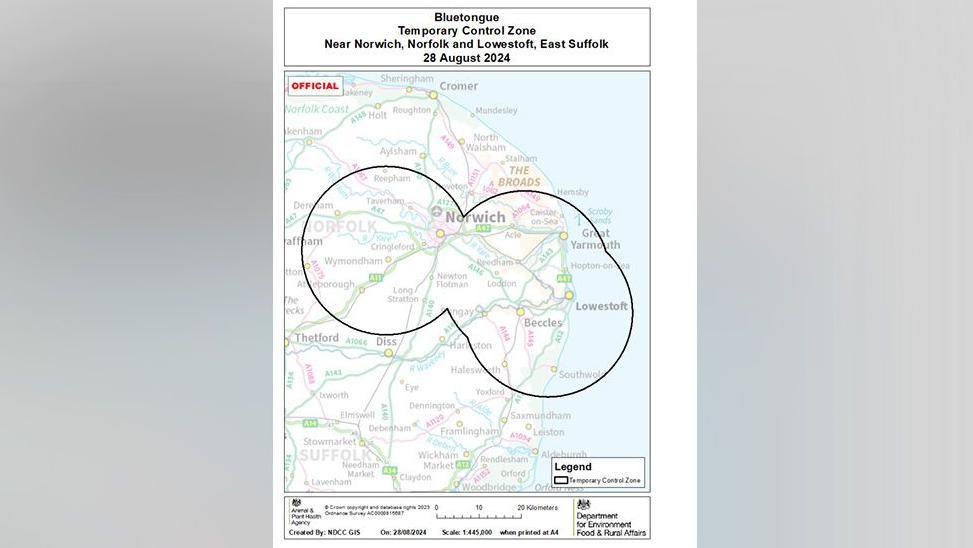
The TCZ controlling the movement of animals now includes Norwich, Attleborough, Great Yarmouth and Lowestoft
An outbreak last year in November was the first in the UK since 2007.
Since then, there have been cases of the new strain in cattle and sheep across Kent, Norfolk and Suffolk.
According to Defra, bluetongue virus is primarily transmitted by midge bites and affects cattle, goats, sheep, goats, deer and camelids such as llamas and alpacas.
The impact on susceptible animals can vary greatly – some show no clinical signs or effects while for others it can cause productivity issues such as reduced milk yield.
It can cause infertility and breathing problems in sheep, cattle and goats.
In the most severe cases, it can kill infected animals.
It does not affect people, and meat and milk from infected animals are safe to eat and drink.
A 20km (12.4 mile) temporary control zone (TCZ) restricting the movement of livestock such as ruminants and camelids has been extended to cover Norwich, Great Yarmouth and Lowestoft, external.
Experts at The Pirbright Institute, external virus research centre are now studying exactly how culicoides midges are spreading the disease.
Earlier this month, the UK's Chief Veterinary Officer, Dr Christine Middlemiss, warned that the risk of bluetongue was "at its peak" due to warmer temperatures across the UK and Europe.
"The Netherlands are now having thousands of cases," she told the BBC.
Get in touch
Do you have a story suggestion for Norfolk?
Follow Norfolk news on BBC Sounds, Facebook, external, Instagram, external and X, external.
- Published27 August 2024
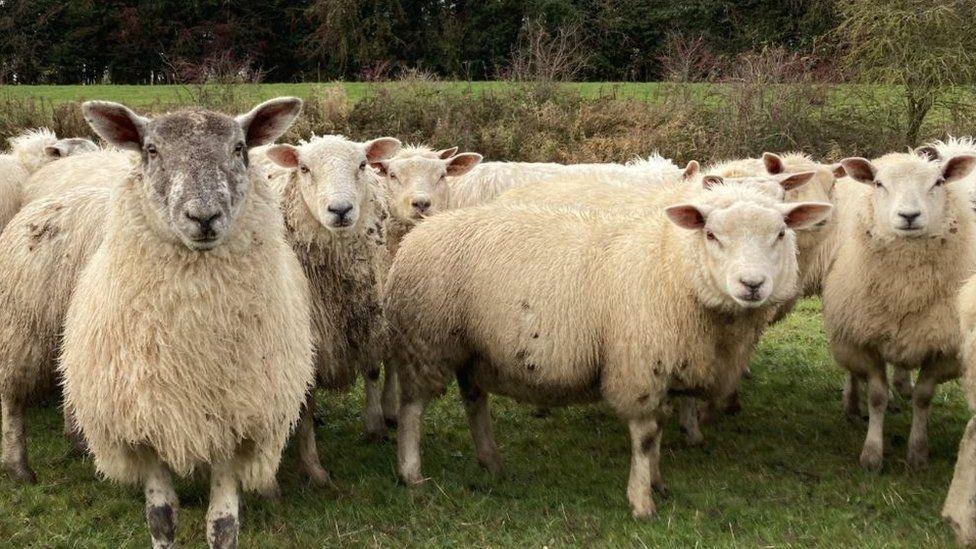
- Published29 August 2024
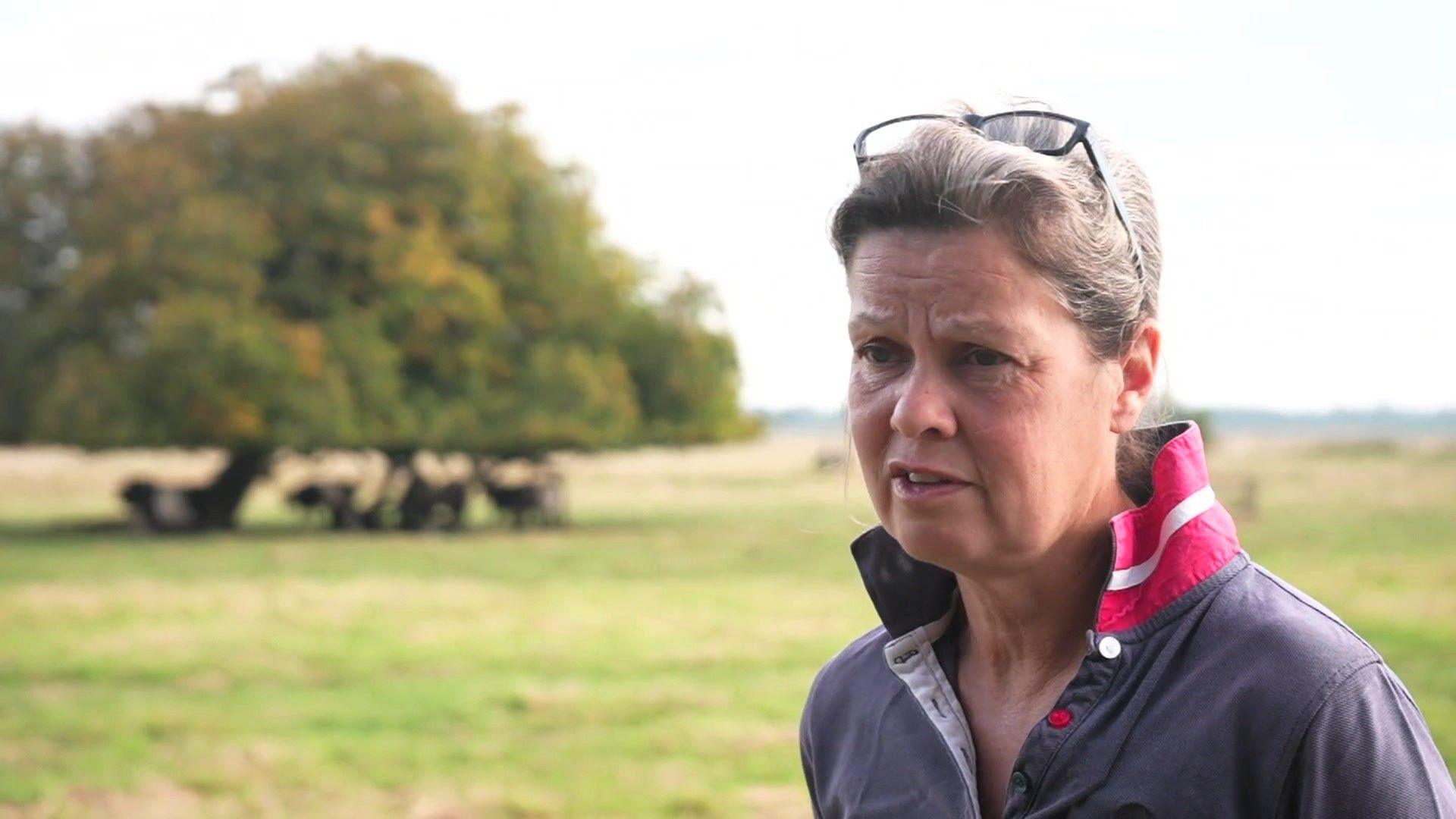
- Published6 January 2024
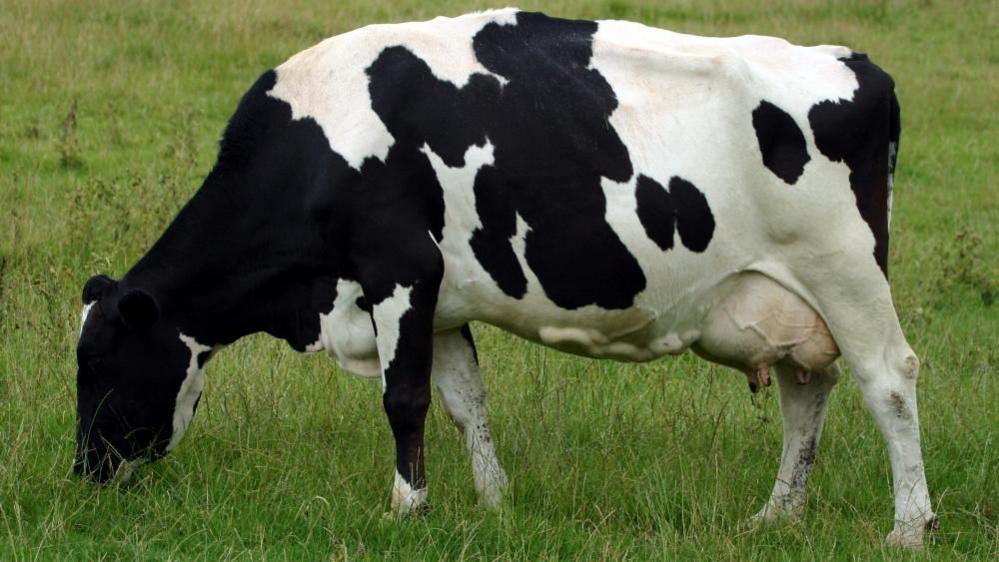
- Published7 May 2024
